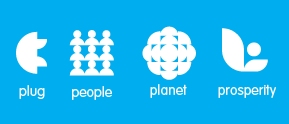Will Better Place Make It ?
Posted by Big Gav in better place, electric vehicles
Greentech media has a look at the prospects for Shai Agassi's Better Place venture - Will Better Place Make It?.
Can three cents be transformed into billions of dollars?
That's the big question when it comes to Better Place, the well-funded start-up that wants to put people into electric cars. Driving a gas car costs about 12 cents a mile when gas costs $3 a gallon, says Jason Wolf, vice president the company's North American division.
Electricity, on the other hand, costs about 3 cents a mile: a kilowatt hour costs around 12 cents and a car can go around 4 miles on a kilowatt hour. A battery for an electric car, meanwhile, will cost around 6 cents a mile over a 200,000 mile lifetime.
Since Better Place says it will supply the electricity and batteries to consumers, the company has a margin of 3 cents per mile (12 cents minus 9) before potential customers complain about the higher cost of going electric. Granted, 3 cents doesn't sound like much: I harvest more loose change than that every time I do laundry. And Better Place proposes building thousands of charging stations, hundreds of battery swapping stations, and devising software so these cars won't crash the grid when charging.
But look at it from another perspective. There are around 200 million drivers and 254 million vehicles in the U.S. and insurance companies say the average person drives 12,000 miles a year. That comes to 2.4 trillion miles, or $72 billion of potential three-cent transactions per year. Even one percent of that would probably placate investors. And in Europe and Asia, higher gas prices boost that 3 cent margin to 9 or 12 cents. Additional revenue can come from selling semi-depleted batteries to utilities, which isn't part of the above calculations.
And with the battery separated from the car, the down payment and resistance toward going electric goes way down.
"When you buy a Toyota, you don't buy eight years of gasoline," Wolf said. "You take out the battery and now you have a much, much cheaper car."
Big math problems like that, along with their inherent uncertainties, make Better Place one of the more intriguing companies in greentech today, or in any market, for that matter. In a short period of time, the company has joined the ranks of Google, Apple, Microsoft and Tesla Motors as a subject of endless debate and speculation. How did they raise over $700 million? How much have they spent? Will car dealers and manufacturers work with them?






